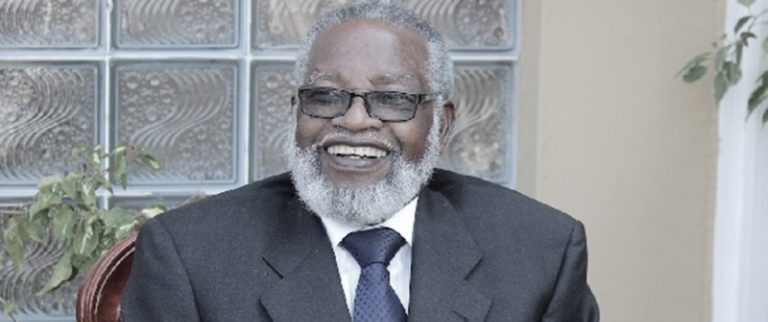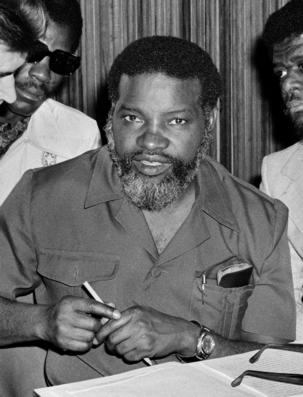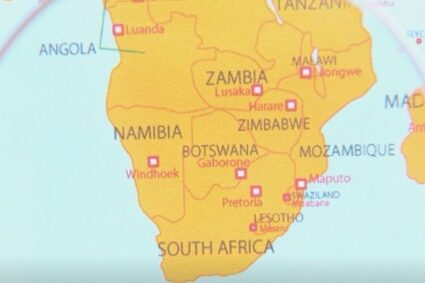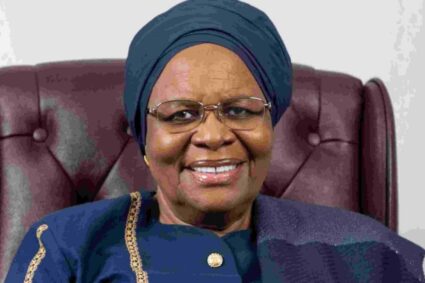
Windhoek – Namibia is in mourning following the passing of Dr. Sam Shafiishuna Nujoma, the Founding President and Father of the Namibian Nation, who died at the age of 95 on February 8, 2025, at 11:45 PM in Windhoek. His death was announced by President Dr. Nangolo Mbumba, who described it as a profound loss that has shaken the foundation of the country.
Dr. Nujoma, a revered freedom fighter and revolutionary leader, played a pivotal role in leading Namibia to independence on March 21, 1990, after decades of struggle against colonial rule. As the nation’s first president, he laid the foundation for Namibia’s development, unity, and self-determination. “He did not only blaze the trail to freedom, but he also inspired us to rise to our feet and become masters of this vast land of our ancestors,” President Mbumba said in his statement.
A period of national mourning will be observed, with further details on the burial arrangements to be announced following consultations with the Nujoma and Kondombolo families. President Mbumba extended his deepest condolences to Former First Lady Kovambo Nujoma, Honorable Utoni Nujoma, the Nujoma and Kondombolo families, and the people of Namibia. As Namibia bids farewell to its founding father, tributes continue to pour in from across Africa and the world, honoring his legacy of resilience, leadership, and dedication to the Namibian people.
His Excellency Dr Sam Nujoma, Founding President of the Republic of Namibia was born on 12 May 1929 at the Etunda village, Omusati Region in the North-Western part of Namibia to Mr Daniel Uutoni Nujoma and Mrs Helvi Mpingana Kondombolo. He is the firstborn in a family of 11. Like all boys of those days, he looked after his parent’s cattle and assisted with home chores including cultivation of land.
He received his primary education from the Okahao Finnish Mission School from 1937 to 1945. In 1946 he moved to the coastal town of Walvisbay to live with his aunt Gebhart Nandjule. In 1947, at the age of 17, he got his first employment in a store where was earning a monthly salary of 10 Shillings. It was in Walvis Bay that he got exposed to modern world politics by meeting soldiers from Argentina, Norway and other parts of Europe who had been brought there during World War II. At the beginning of 1949, Dr Sam Nujoma went to live in Windhoek with his uncle Hiskia Kondombolo. In Windhoek, he started working for the South African Railways. At this period, he attended adult night school at St. Barnabas in the Windhoek Old Location. He further studied for his junior Certificate through correspondence at the Trans-Africa correspondence college in South Africa.
On 6 May 1956, Dr Nujoma got married to Kovambo Theopoldine Katjimune. Madam Nujoma was born on 10 March 1933 in Windhoek. They had 4 children: Utoni Daniel (1952), John Ndeshipanda (1955), Sakaria Nefungo (1957) and Nelago (1959), who passed away at 18 months sadly while Dr Nujoma was in exile. To date, Dr Nujoma and his wife have been blessed with many grandchildren.
With a deep passion for politics and yearning to see his people free from the restricted pass law system and confined according to Ethnic groupings, Dr Nujoma resigned from the South African Railways in 1957 at the age of 29. He did so with the purpose of devoting his time to politics. In 1959, he was elected Leader of the Owambo People’s Organization (OPO) which aimed at ending the then contract system and ending the South African colonial administration by placing South West Africa (SWA) under the UN Trusteeship system. Through this, Dr Nujoma petitioned the UN in the late fifties, together with Chief Hosea Kutako, Samuel Witbooi, Theophilus Hamutumbangela, Toivo ya Toivo and others demanding that the then South West Africa be placed under the UN Trusteeship system.



